Meet the 2022 Early Childhood Latin America Fellows
The Dart Center for Journalism and Trauma is pleased to announce the recipients of its Early Childhood Reporting Fellowship for journalists in Latin America and Brazil.
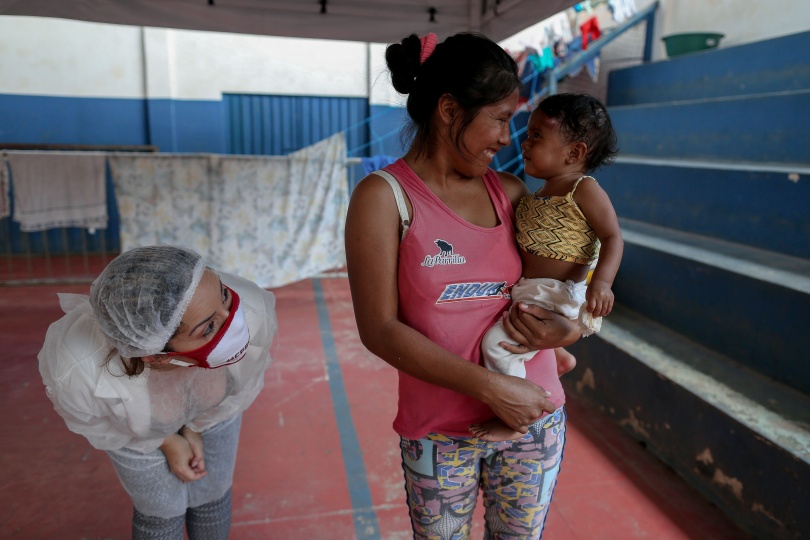
A member of Doctors Without Borders looks at a girl of the Warao tribe, Venezuela's second-largest indigenous group, as her and her mother receive medical care for symptoms of the novel coronavirus in Manaus, Amazonas state, Brazil, on June 3, 2020.
Para visualizar em português, clique aqui. Para español haga clic aquí.
The Dart Center for Journalism and Trauma is pleased to announce the recipients of the 2022 Early Childhood Reporting Latin America Fellowship.
The program will support 20 journalists (15 from Brazil and 5 from across Latin America,) who will work on projects about inequality, a historic problem in the region that has only grown during the COVID-19 pandemic.
The fellows will investigate topics such as school dropout rates, the impact of hunger, the effect of climate change on child development, and violence against young children, among other important stories.
Fellows will receive a stipend of US $ 1,500 and mentorship by senior journalists. The fellows will also attend monthly webinars with experts from different countries in the fields of science, education, public health, and journalism.
The fellowship, which runs from May to October 2022, is led by journalist Fábio Takahashi and supported by mentors Daniela Tófoli, Irene Caselli, Mariana Kotscho, and Paula Perim.
This program is part of the “Early Childhood Journalism Initiative” a multi-year Dart Center training program to improve news coverage of early childhood development around the world. The initiative is sponsored by the Maria Cecilia Souto Vidigal Foundation (Brazil), Bernard van Leer Foundation (Netherlands) and The Two Lilies Fund (United States).
“At Maria Cecilia Souto Vidigal Foundation we believe that a press which is sensible to the early childhood topic is an indispensable actor in the social transformations we want to see. The good work of the press presents and clarifies urgent agendas and mobilizes different groups in society. This is especially important in an atypical election year like this one. Added to the usual challenges are the multiple consequences of two years of pandemic, whose impacts are particularly harmful to children aged between 0 and six years old in socially vulnerable situations. Our role is to help the gears to turn, with information and training programs that contribute to this. We want this initiative to be an opportunity for learning, a lot of exchange and interaction between journalists.” – Mariana Montoro Jens, Communication and Government Relations Director at Maria Cecilia Souto Vidigal Foundation
"Young children across Latin America today contend with escalating adversity -whether from pandemic, economic inequality, violence. The extraordinary journalists chosen for the Dart Center’s Latin America Early Childhood Reporting program are deeply committed to illuminating these critical issues, producing reporting that makes a difference across the region." - Bruce Shapiro, Executive Director of the Dart Center
Program Leadership
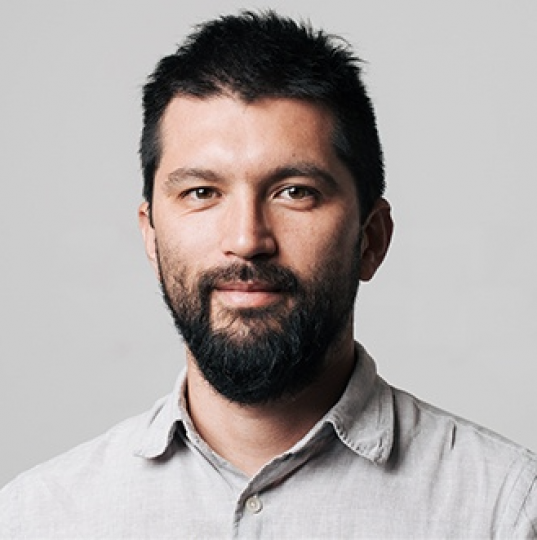
He is also the founder and current president of the first association for education reporters in Brazil, the Education Reporters Association, which launched in 2016. In 2013, he was the first journalist to attend the Executive Leadership Program in Early Childhood Development, a short course at Harvard University.
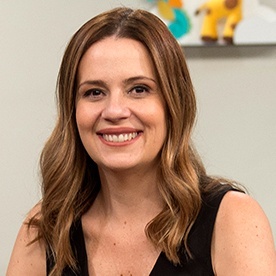
She is the winner of the Vladimir Herzog Award for coverage of human rights issues. Kotscho created and now presents the program "Papo de Mãe," which covers topics related to education, behavior and child health.
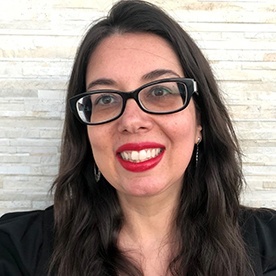
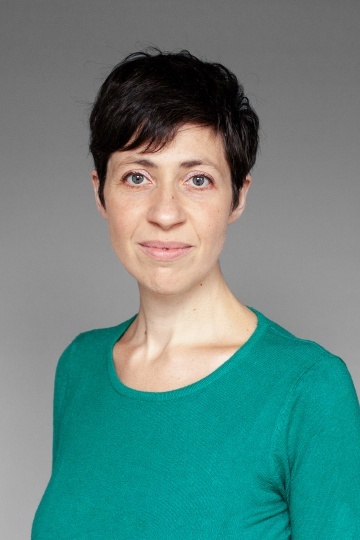
For a decade, Caselli was a foreign correspondent in Latin America, reporting for the BBC, The Washington Post, The Guardian, The New York Times and others. In 2019, she started covering early childhood for The Correspondent. In January 2021, she launched her own newsletter, The First 1,000 Days, where she continues her writing about the first 1,000 days, the foundational period of our lives that is too often overlooked. Caselli published a chapter in “Unbias the News,” a book about how to make journalism more diverse. She produced a documentary on women’s football and gender inequality, and one of her short films on the same subject received a prize for collaborative journalism.
Caselli has been awarded fellowships by the International Women’s Media Foundation, the European Journalism Centre and the Solutions Journalism Network. She speaks six languages (English, Italian, Spanish, German, French, Portuguese), and is now learning Greek. In her free time, she plays with her son Lorenzo.
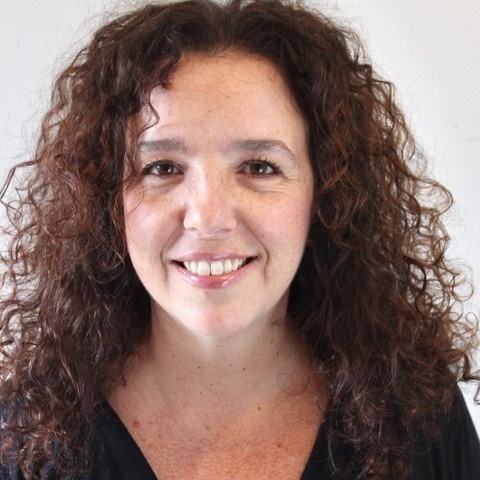
From 2017 to 2021, Paula worked as Communication and Awareness Director at Maria Cecilia Souto Vidigal Foundation, one of the most important organizations focused on Early Childhood in Brazil. Before that, Paula worked for 17 years at Editora Globo as editor-in-chief at Crescer (focused on parenting) and later became the publisher of a group of magazines: Casa e Jardim (decorating and gardening), Casa e Comida (cooking), Galileu (science and youth behavior), in addition to Crescer. She is the author of the book "101 ideas to enjoy with your child - before he/she turns 10" and editorial director of the books: "Babies of Brazil - A portrait of Brazil in photos and stories of 27 children" (partnership with UNICEF) and "Crescer por um mundo melhor” (“Growing up for a better world”). Paula began her career working as a producer at MTV-Brasil. She is the proud mother of Júlia and Beatriz.
Fellows
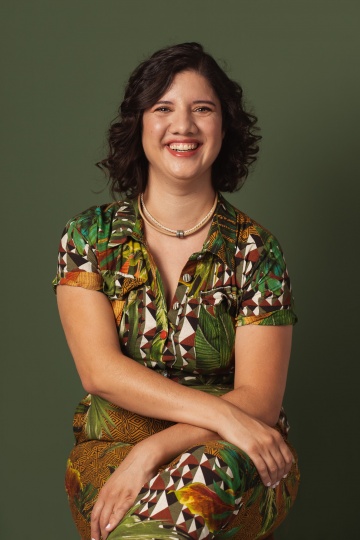
A mother, resident of Campo Limpo (São Paulo), journalist, and specialist in education for the deaf, Aline is also a member of the Abya Yala Feminist School and co-founder of the journalism production company Periferia em Movimento.
Project: Special audiovisual report will portray the impacts of the last two years of the pandemic and the historical absences of structure in society on the development of children with disabilities living in the outskirts of the city of São Paulo.
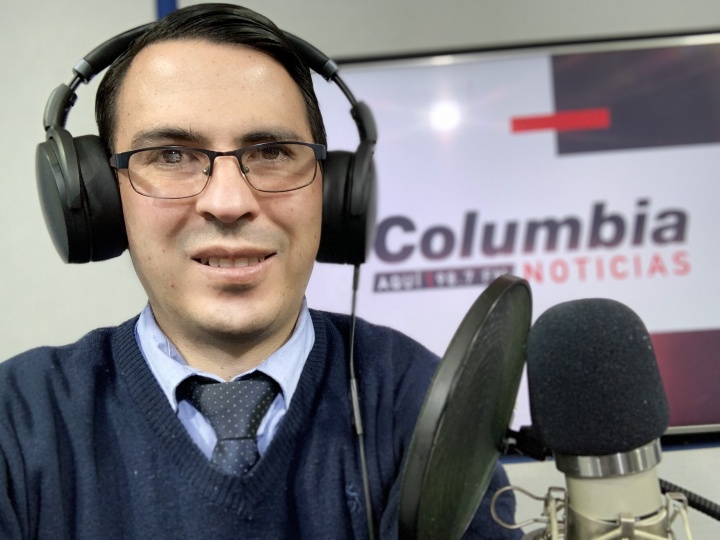
A Costa Rican journalist, with an emphasis on political coverage, Allan has experience in radio, television and digital journalism. He is currently information director and producer of the Voices, podcast at Radio Columbia, the most listened radio station in the country. Winner of the 2020 Radio Production Award from the College of Journalists of Costa Rica.
Project: Multimedia project, with special emphasis on a podcast, about the early childhood care network in Costa Rica. Between 2010 and 2014, the government developed a strategy to guarantee the entry of children from 0 to 6 years old to a strategy that guarantees their care and development, while women, mainly heads of families, take care of the children, facing severe limitations to find and keep a job.
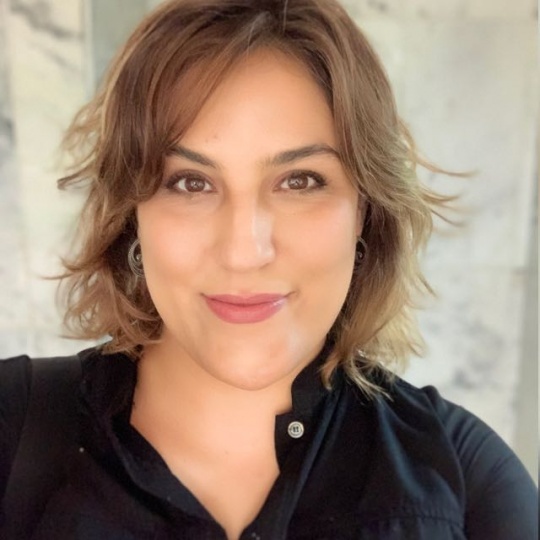
A graduate of the Federal University of Paraná (UFPR), with a postgraduate degree in literary journalism, Amanda has worked at The Intercept Brasil, Congresso em Foco, Folha de S.Paulo, and other outlets. She is currently a reporter for The Brazilian Report. She won awards for best reporter in print media (Communique-se, 2019) and web revelation (Mulher Imprensa, 2020).
Project: The project seeks to investigate whether Covid-19 will increase child labor in Brazil. The pandemic caused records of school dropout, especially in early childhood – given that it is historically linked to child labor. It will analyze index databases, bring in expert approaches and go into the field to show what it means to drop out of school in the early years of development.
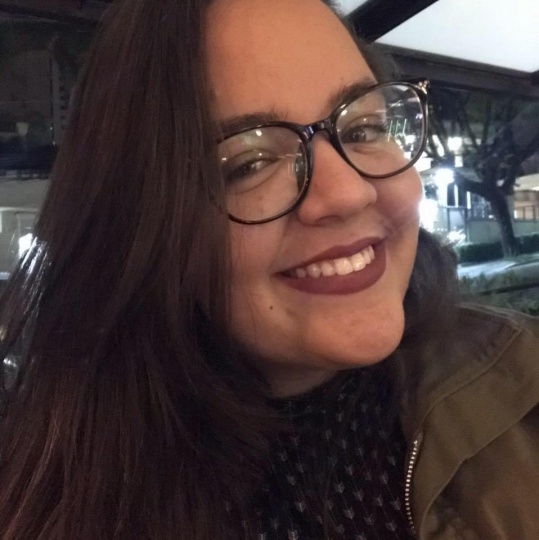
A journalist in São Paulo and currently a reporter at the UOL portal, Ana Paula writes mainly about education, as well as daily life, politics, and health. She was a finalist for the Tetrapak award for environmental journalism, hosted by Estadão company, and a student of the Reporter of the Future-Discovering São Paulo, Discovering-reporter course. She has worked for the newspaper Diário de S. Paulo and the website NOVA ESCOLA.
Project: Reporting series will show the impact of school lunch (or lack of it) for early childhood children. A study carried out by the School Feeding Observatory pointed out that during the pandemic only 14% of public school students received food baskets or food cards by the PNAE (National School Feeding Program). How were these families? What was the work of municipalities and states? What are the current public school feeding policies? Thinking about the electoral period, what presidential candidates have raised on the subject?
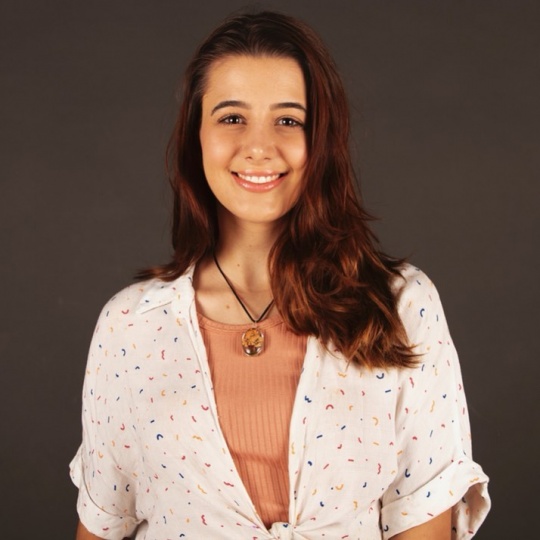
Now a multimedia reporter for the Estado de Minas newspaper, Ana Raquel actually started there as an intern. As soon as she graduated from the journalism program (2022), she was admitted to the journalist team. She works in social networks, production and verification of podcasts, videos and materials for digital and print.
Project: Give visibility to the ‘Baby on Board’ Project, from the Dr. Edelzio Vieira de Melo, in Sergipe, which allows teenage mothers to take their children. The focus of the report is to address the impact of the project on early childhood.
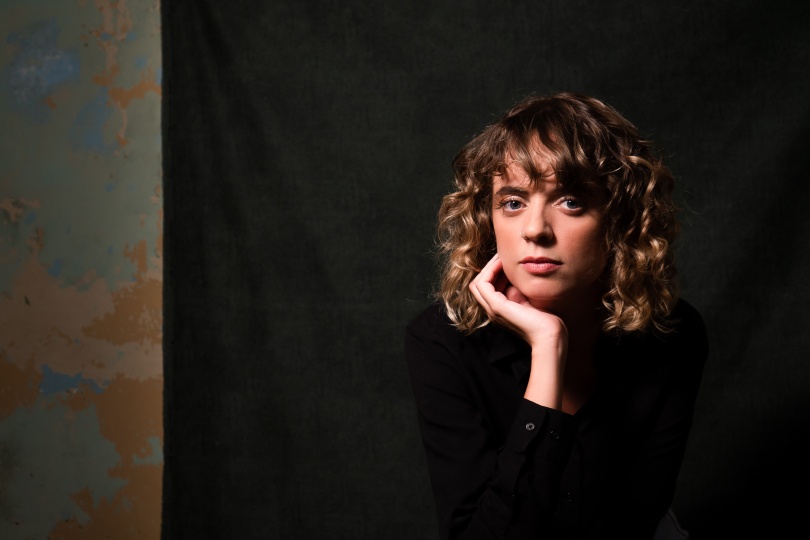
A special reporter for Folha de S.Paulo, Anna has been working for the newspaper since 2010 and spent 2016 in New York as a correspondent. She writes about religion, human rights, and politics.
Project: The report will be guided by the story of three children born on March 11, 2020, when the WHO put the world under a pandemic state. The idea is, through this narrative skein, to investigate how early childhood was penalized by a health crisis that deprived babies and children of several socialization milestones essential to this stage of life.
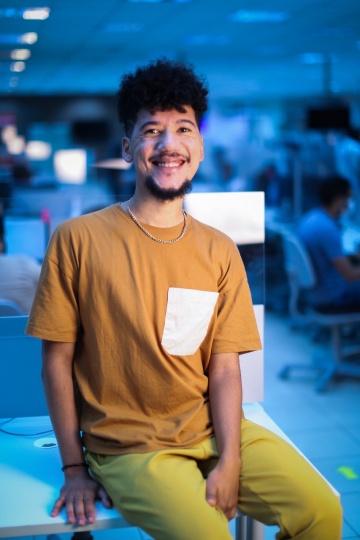
A graduate of the Federal University of Pernambuco, Bruno works as a cultural reporter at Jornal do Commercio, and is part of the 6th generation of young journalists at Red LATAM (Distintas Latitudes). He is co-founder and content director at Agência Retruco.
Project: Investigate how the Covid-19 pandemic accelerated inequalities and caused a delay in children's literacy, in the urban and rural outskirts of the Brazilian Northeast, a region that concentrates the worst socio-educational indices of the first school years in the country.
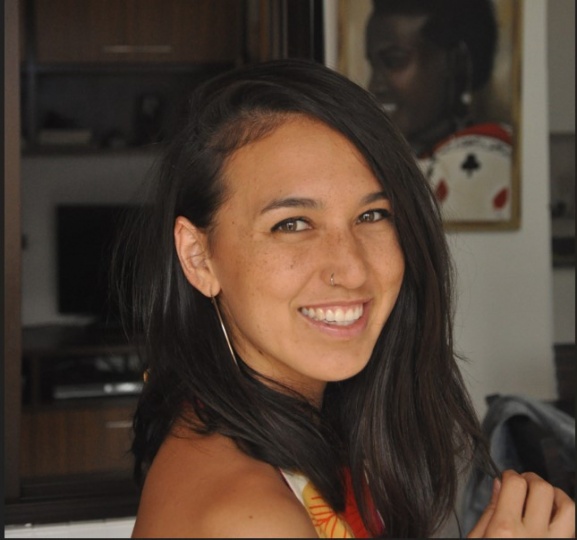
Project: Tell stories of pregnant women and/or new mothers from four traditional communities and threatened territories, exploring the contexts of housing quality, food security, access to health and network and support for families. The report aims to investigate and give visibility to the living conditions derived from impoverishment, stress and social distancing, felt by mothers and other caregivers, but which will still have incalculable impacts on child development.
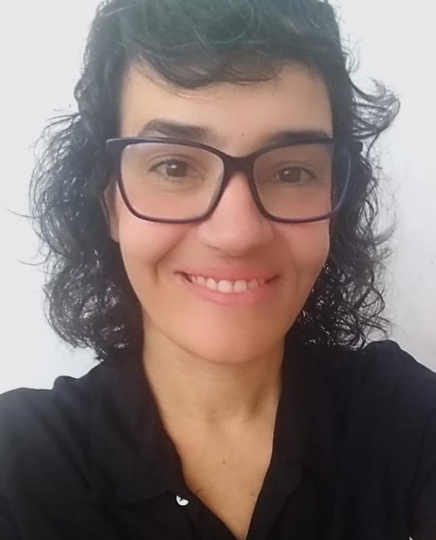
A journalist from Salvador and mother to Joaquim, Carla works at a school for children where she develops communication projects with them and is a writer for the Regional Electoral Court of Bahia.
Project: In the multimedia special "Politics is a Child's Thing", girls and boys from two schools in Bahia, in the capital and in the interior, will be consultants for the candidates for the presidency of the republic, in the context of the 2022 General Elections. The series will show early childhood as the protagonist.
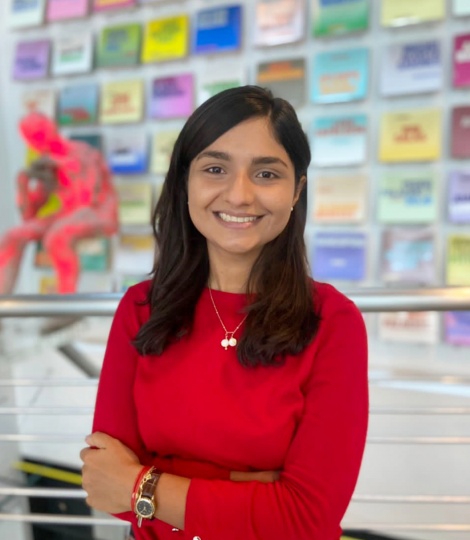
A Venezuelan journalist, Carmen covers education, migration and human rights. She is a professor of Journalism at the Central University of Venezuela. Carmen was a reporter for media outlets such as El Tiempo, Unión Radio, El Nacional and Crónica.Uno. She is part of the 4th Generation of the LATAM Network of Young Journalists.
Project: The armed conflict in the neighborhoods of Caracas is a siege that impedes the school routine and makes it difficult for children under five who have just started school. Caregivers and staff educate with no state programs or plans to help them protect their lives and schools.
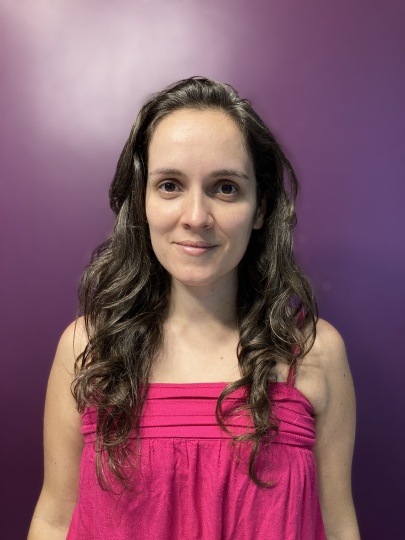
With nearly 20 years of experience reporting for print newspapers, magazines, the internet and television - eight of which have been devoted to education reporting - Carol is currently a senior data journalist at TV Globo.
Project: It intends to investigate the impact of the Covid-19 pandemic on the drop in access to education among children aged 0 to 5 years old (in daycare and preschool age), with a focus on social and racial inequality, through the analysis of official educational databases.
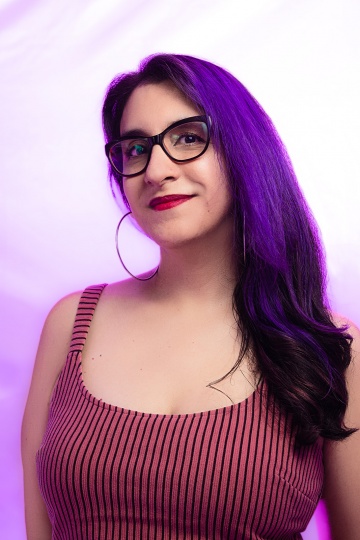
A reporter who has given special emphasis to narrative journalism throughout her career, Diana focuses on social, gender, and human rights issues. She has a master's degree in digital journalism and is a member of Fundación Periodistas Sin Cadenas, where she reports on attacks on the press in Ecuador.
Project: She will investigate the relationship between early childhood, active fatherhood and positive masculinity, approaching this issue from a gender perspective and analyzing how it is crossed, in some cases, by machismo, violence and inequality in Ecuadorian homes.
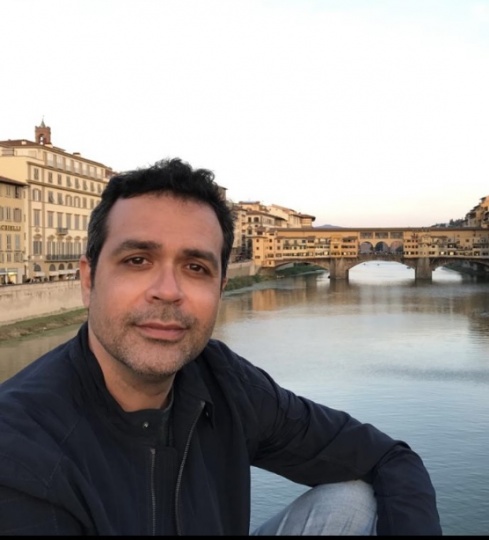
A journalist with 16 years of experience, Emilio has worked in some of the main media outlets in Brazil, such as Estadão, G1 and Folha de S.Paulo, where he worked for 11 years. He is currently a reporter for O Estado de S.Paulo, where he covers issues related to the environment.
Project: It will investigate how the effects of climate change, and the extreme events that grow in number and intensity, affect early childhood in Brazil in one of the guarantees of their fundamental rights: the right to health.
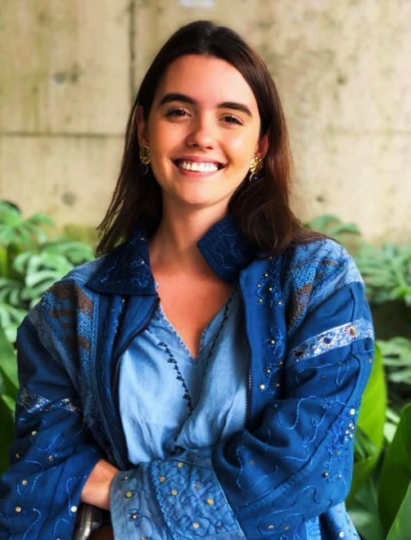
Born and raised in Santos, on the coast of São Paulo, Luiza is a young journalist graduated from PUC-SP and an editor at Conexão GloboNews. Eight years ago, she became familiar with the precarious housing situation in the country through the NGO TETO Brasil –which works with community development in favelas located on the extreme poverty line.
Project: Demonstrate how poor housing deeply affects personal and intimate issues of children in early childhood: from access to education to the construction of personality. The series of three reports, in video, will expose the reality of a childhood in precarious housing, with visual and noise pollution, proximity to crime, insalubrity and extreme lack of the most basic conditions for the formation of a human being.
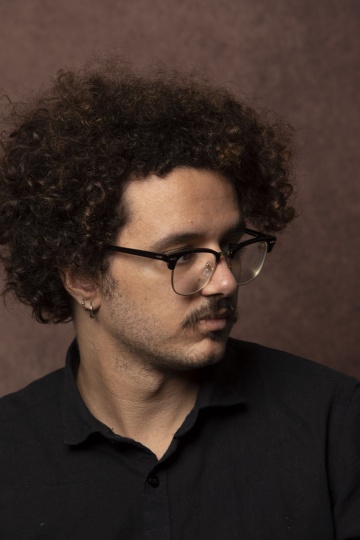
Graduated from the Federal University of Santa Catarina, Matheus is a reporter and writer based in the state of Rio de Janeiro focusing on human rights reporting. He has collaborated with the major media outlets in the country and, recently, published his first book: “O coronel que raptava infantiles”, by Intrinseca.
Project: It will address the psychological effects of growing up in conflicted territories and with urban conflicts (fratricidal wars between factions and/or police forces).
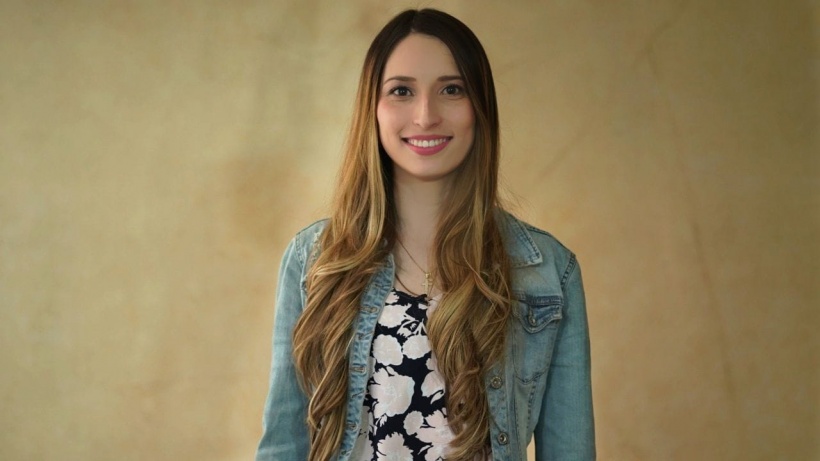
A Colombian journalist who works at the El Espectador newspaper, Paula has covered health, science, environment, and education the last four years. In 2019, she created a video project in which she highlighted the stories of women in sport. She is a first-generation scholarship holder of the Inter-American Press Association (IAPA) diploma course “Discovering the Secrets of Journalism.'
Project: Colombia is one of the most violent countries for women. In 2021 alone, 622 femicides were recorded, of which five were in pregnant women and 251 in mothers. Public policies in this country have left out one problem: boys and girls orphaned by femicide. The work seeks to show how his life has changed, the mental and economic problems due to the femicide of his mother or main caregiver.
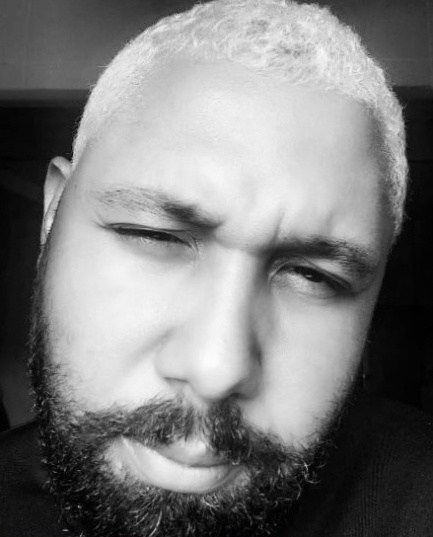
A journalism graduate of the Federal University of Paraíba (UFPB), Pedro also holds a masters degree in journalism and is a current PhD student in Anthropology at the same institution.
Project: Narrative about preventable deaths of newborns in urban, intermediate and rural municipalities adjacent to Paraíba.
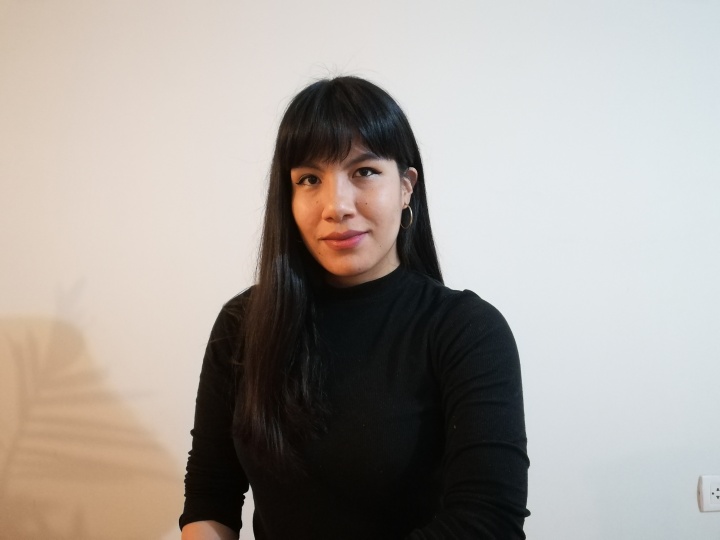
A journalist and writer specializing in gender, inequality, and human rights issues, Rosa's reports have appeared in the media in in outlets such as Ojo Público and Salud con Lupa (Peru), The Clinic (Chile), RedAcción (Argentina), Travesías (Mexico), VICE (Latin America). The New York Times (US) and Courrier International (France). She is currently a reporter for Ojo Público and professor of Literary Journalism at the Peruvian University of Applied Sciences (UPC).
Project: "Os Filhos do Rio Escuro" is the story of the children of the provinces of Melgar and Lampa, in southern Peru. There, in one of the poorest places in the country, its inhabitants drink the waters of the Llallimayo River basin, contaminated by heavy metals such as arsenic, lead or mercury. Contamination by these toxins causes lifelong neurological and physical damage in children under five. The Peruvian state is not yet responsible for the health of the people of Llallimayo.
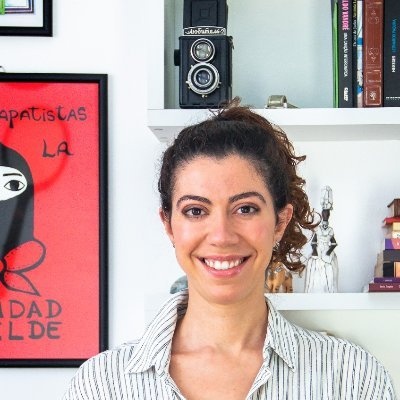
A journalist and geographer, Sarah is dedicated to the production of reports on human rights. She is currently a radio editor in Brasil de Fato and responsible for the production of the children's podcast Radinho BdF which discusses topics of social relevance with children.
Project: A series of podcasts will portray how illegal mining interferes with the physical, emotional and economic development of riverside children in the Amazon.
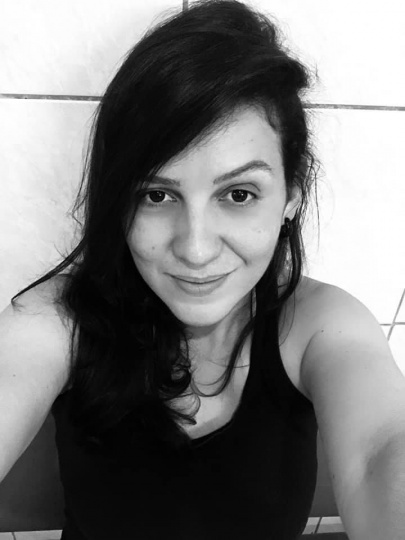
A journalist for about 20 years, Tatiane has worked for Folha de S.Paulo, Catraca Livre portal, Globo publishing house, various other media outlets, as well as for NGOs. For 10 years she has been working with a focus on the socio-environmental agenda and with traditional communities.
Project: Discuss the institutional prerogative “Childhood as an absolute priority”, through the stories of children living in urban resettlements in Altamira (PA) compared to the childhood of previous generations, addressing how the construction of the Belo Monte hydroelectric plant impacts the relationship with the Amazon environment.
































































































